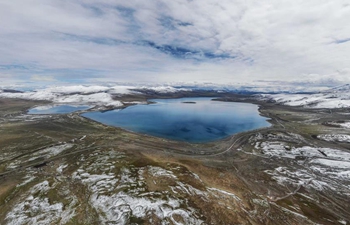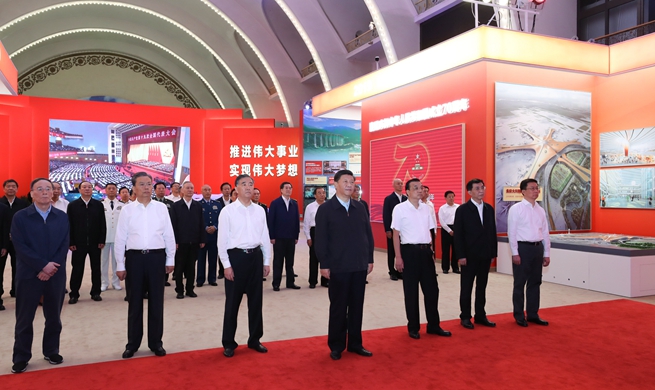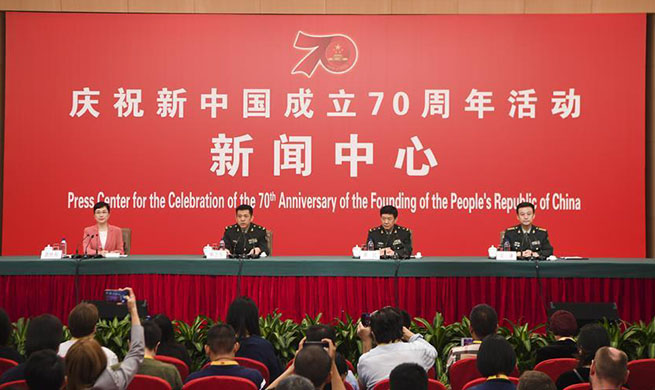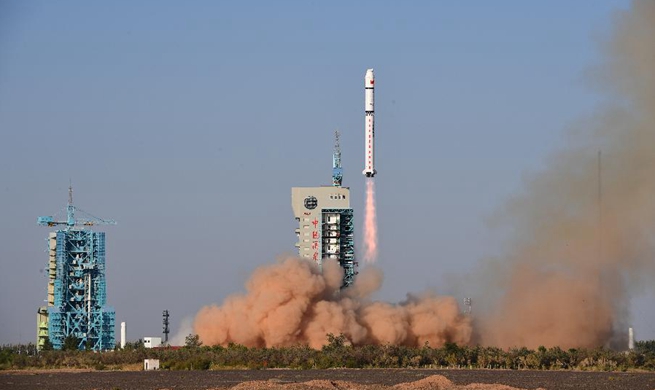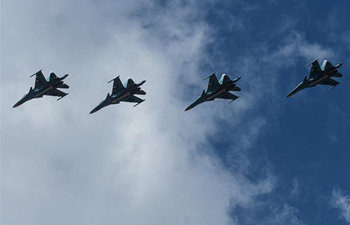ANKARA, Sept. 24 (Xinhua) -- Turkey and the United States have witnessed ups and downs in the talks on creating a safe zone across the Turkey-Syria borders, and the next compelling issue is a Turkish demand for establishing military bases in northern Syria.
On Aug. 7, Turkish and U.S. military officials agreed to set up a safe zone in northern Syria and develop a peace corridor to facilitate the movement of displaced Syrians who want to return home.
In the initial talks for the safe zone, the U.S. was opposing any presence of Turkish troops in the zone, but the talks came to the point of joint presence of Turkish and the U.S. military personnel in the area.
Despite Turkey's demand for a 32-km depth of the safe zone, the U.S. insisted on a zone expanding between 5-15 km deep into northern Syria.
They are near the agreement on the 15-km depth, as well as taking gradual steps in a few months, a Turkish official told Xinhua on condition of anonymity.
The deal stipulates a zone which stretches 140-150 km along the Turkish border that starts from the Tal-Abyad town in northern Syria, the official said.
According to the schedule agreed between the military delegations, a joint operation center was established in Turkey's southern Akcakale district for coordinating the activation.
Under the deal, Turkey and the U.S. also started joint land and helicopter patrols, and Turkey began flying unmanned drones over the safe zone.
The deal also envisages withdrawal of People's Protection Units (YPG) fighters, which Ankara regards as the Syrian offshoot of the the banned Kurdistan Workers Party (PKK), and the removal of their fortifications in this area. But these are yet to be fully implemented, triggering Turkey's anger.
Meanwhile, Turkey further asked for establishing military bases in the zone for conducting patrols in the east of Euphrates and the negotiations are ongoing for these military posts, the official said.
Turkey's Minister of Defense Hulusi Akar recently revealed that Turkey and the U.S. will set up joint military bases in the safe zone.
"In April, the U.S. said that 'not even a Turkish soldier could enter the east of the Euphrates.' These meetings and negotiations have reached a certain point. We agreed at some points, but failed to reach an agreement at some points," Akar said in an interview with the media on Sept. 19.
The minister said that Turkey's next goal is to create a safe zone with a 30-km depth and a 450-km length along the border and to assure the removal of the YPG from this region.
Ankara and Washington are moving toward the agreement but Turkey is infuriated by the ongoing U.S. support to the YPG.
The group has been the main U.S. ally on the ground in Syria during Washington's fight against the militant group Islamic State (IS), and the U.S. is still delivering aid to the Kurdish fighters despite the defeat of IS.
Turkey originally planned to launch a military incursion into the Kurdish-controlled eastern Euphrates, but put it on hold upon U.S. President Donald Trump's proposal of a safe zone in the area, former Turkish ambassador Oguz Celikkol said.
Celikkol recalled that the U.S. sees the YPG as its main ally on the field, but Ankara is bent upon carrying out military operations east of the river since it sees the retreat of the YPG as a must for its national security.
He emphasized that Turkey's choice is to "clean" the Turkish-Syrian border from the YPG and maintain the security in joint efforts with the U.S.
However, Ankara does not trust the U.S. administration given the experience on a Manbij deal which stipulated withdrawal of Kurdish fighters from the northern Syrian Manbij town but has not been fully implemented yet, Celikkol said.
He noted that Turkey had carried out the Operation Olive Branch to seize control of Syria's Afrin region from the Kurdish militia and Operation Euphrates Shield despite the U.S. opposition.
Ankara could take actions for unilateral intervention in the east of the Euphrates if the U.S. fails to meet its demands, the former ambassador said.




